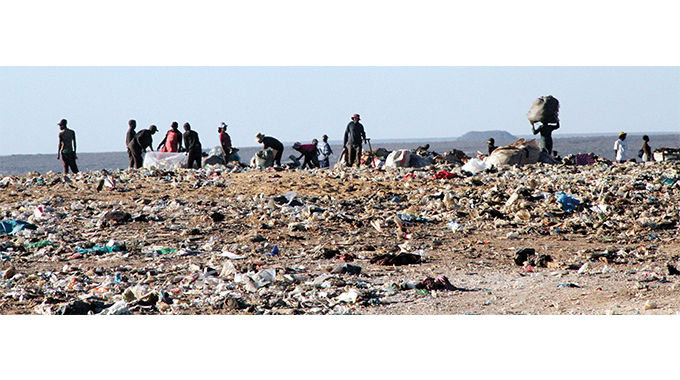Companies predict a difficult 2023
As curtains come down for 2022, most companies are worried if there will be light at the end of the tunnel. For them, the year 2022 was a period of contrasting quarters with relative stability in the first quarter and tremendous volatility in the second quarter caused by soaring inflation and local currency depreciation.
The third quarter saw the government coming up with a raft of measures aimed at taming runaway exchange rate and inflation, which have had desired results according to the Government.
The Central Bank is determined to maintain the bank policy rate and medium-term lending rate at their levels of 200 percent and 100 percent, respectively and has vowed to maintain a tight monetary policy stance.
Among other measures include the decision to suspend payments to contractors, government agencies and departments which it accused of active participation in the deteriorating exchange rate.
However, businesses believe these measures have worsened the liquidity crunch resulting in some companies failing to honour their debt obligations. Companies whose business models rely on credit sales have abandoned ZWL credit sales, preferring USD and cash sales, alienating local consumers in the process.
“The reason is the high interest rates which make borrowing to fund credit in ZWL unsustainable for both the credit provider and the consumer,” said Retailers Association of Zimbabwe chairperson Peggy Rambanepasi.
Companies hoping the Government measures to contain inflation and stabilise the exchange rate will be reviewed in a manner that takes cognisance of the need to support business.
Seed Co Limited in a recent update said it has turned to stockholding as a good store of value in view of inflation.
Morgan Nzwere, the company’s chief executive said the greater part of this year’s first half was characterised by an unstable operating environment driven by hyperinflation, high interest rates, local currency depreciation on both official and alternative markets.
“Seed production in Zimbabwe defied the challenges associated with difficult grower pricing negotiations, high input costs and erratic rains.
“The pricing and reporting currency quagmire has been that the economy is largely dollarised, but the ZWL is still the official local currency. These currency issues have had a negative impact on the business,” he said.
Economist, Enock Rukarwa, said the year 2023 will be characterised by mixed economic circumstances taking a que from the contractionary stance by the Apex Bank and 2023 harmonised elections.
“We forecast limited economic activity ahead of elections as investors apply a wait and see approach to strategic decision making,” he said.
He added that companies should thrive to maintain volume growth and inflation proof balance sheets as the economic environment will be surrounded by uncertainties.
“Looking at 2023, policy uncertainty will linger to be prevalent whilst political risk will be elevated ahead of the elections. However, opportunities will continue to present in business lines which are demand inelastic,” he emphasised.
Amalgamated Regional Trading (ART), said the operating environment is expected to remain challenging with the continued impact of the unfolding global recession.
However, the group noted that the elimination of the expensive local currency debt after year end has brought significant relief as the group embarks on a journey of stabilisation and recovery with focus on cash generation, sustaining working capital improvement and optimally managing gearing levels.
Tanganda Tea Company said the operating environment has been characterised by high inflation, exchange rate volatility and high cost of funding. It noted that annual inflation which receded to 51 percent in September 2021, took an upward trajectory to 285 percent in August 2022, before easing down slightly to 280 percent in September 2022.
“This was after multiple policy interventions implemented by the Government and monetary authorities aimed at managing liquidity, exchange rate volatility and inflation.”
Economist, Eddie Cross, on his part admitted that 2022 was a difficult year for many companies.
He said although the economy has been expanding, the continued devaluation in the local currency and the associated inflation in prices has made trading conditions more difficult than in 2021.
“Essentially, we have re-dollarised and this has made it easy to import and for other countries to export into our market. Smuggling across our borders has increased and this is putting pressure on the formal sector.
“The problems associated with the Reserve Bank auction has not helped and has moved the majority of demand for hard currency into the parallel market. This has increased costs,” he said.
Cross noted that in the absence of any real changes in policy, these conditions will transfer into 2023 and may be amplified. “Zimbabwean business knows how to handle these pressures but they discourage investment and formal business.
“My advice to business is to watch the cash flow all the time. If you cannot manage this, you will find it difficult to remain in business,” he said.
Another economist, Vince Musewe, said although the environment has stabilised somewhat there is lack of confidence in the economy and this has been made worse by power cuts.
“Disposable incomes have stifled aggregate demand with more economic activity being in the informal sector,” he said.
He added that companies need a stable currency, access to credit and low inflation and increasing demand for their products or services.
“This is unlikely in the coming year as we move to elections, which always create a lot of uncertainty in the business sector. Recovery is therefore unlikely in the short to medium term,” he noted.
As the country readies for general elections next year, fears abound the period will result in election spending that may stimulate inflationary pressures, if not managed properly.
Economist, Dr Prosper Chitambara, said from past experiences and even from other countries, electoral related spending has a destabilising effect on the macro-economy, but this differs from country to country.
“We expect that spending related to elections next year may result in inflationary pressures being generated,” he said, adding what is needed is the removal of inefficiencies in public spending.
Dr Chitambara said the government has been implementing value for money in the procurement matrixes and it’s critical to ensure that such reforms are followed through.-ebusinessweekly









